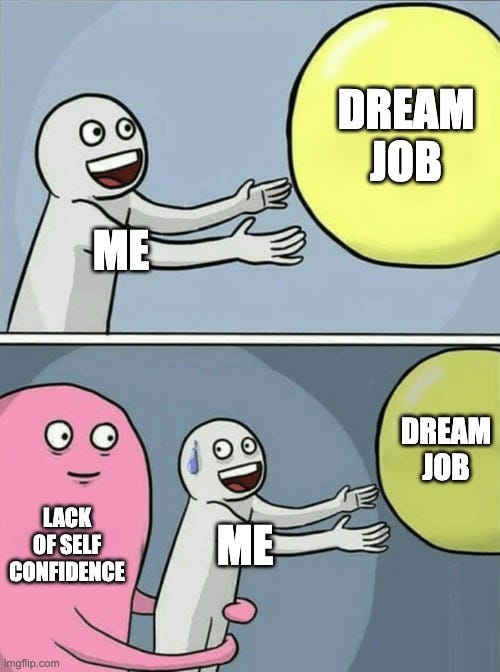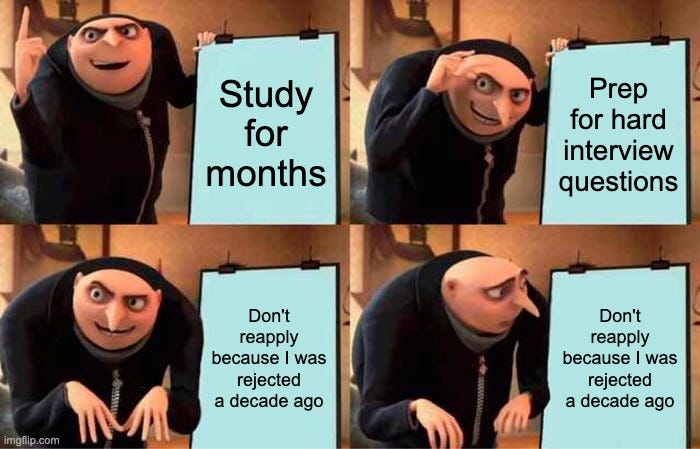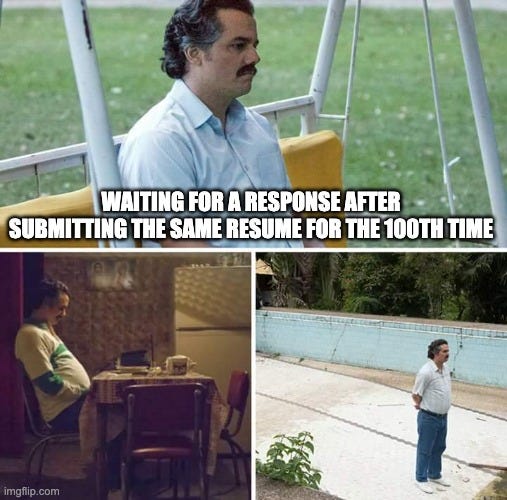This is a bit different from my usual articles on ML engineering, but this is something I think is equally important for your personal and career development.
I hope you enjoy it!
Always be (machine) learning,
Logan
As part of my work at Google, I attend networking events where I meet with others in the tech industry to answer their questions about working at Google, my job, machine learning, software engineering, or anything else they want to ask me about.
These events are particularly energizing for me because most people come with really good questions, are genuinely curious to learn, and care about their careers and the projects they work on.
I get to meet with a wide array of people. A lot of the participants are new grads and college students trying to figure things out, but I also speak to principal-level engineers and upper-level management. In these conversations, I get many different perspectives on job hunting, resume building, project management, leadership, and more.
Within these perspectives, there are three assumptions I see made frequently regardless of years of experience or role profile that harm career potential. Let’s go over each, why it's an incorrect assumption, and how you can remedy it.
Undervaluing yourself
Assumption: "I'm not capable of working at X company" or "X company has no use for someone like me".
I see this consistently regardless of years of experience. I can immediately tell when someone has made this assumption about themselves because their conversation with me generally starts (and sometimes even ends) with them being starstruck about how I work at Google.
These people tend to ask me about how great it is to be working at Google or even asking how it feels to have "made it in life". They don't ever see themselves applying for a job at a company they deem impressive because they don't think they have anything to offer. To get past this, there are three things to understand.
First, there is far more to life than a career. While a successful career can lead to general fulfillment in life, it shouldn’t always be the priority. Thus, "making it in life" isn't dictated solely by your career and you can "make it in life" without having someone else's idea of a dream job. I find when someone makes this assumption, they overvalue their career while simultaneously undervaluing themselves.
Second, it isn't actually your decision whether or not you're a good fit for a job you’re applying for (outside of you deciding not to apply because you don't want to work there). It's the company's job to decide whether or not you'd be a good fit. If you never apply, you make that choice for them and it always turns out negatively for you.
Third, it's okay to be rejected or fail an interview. Often rejections like these happen for reasons outside of your control. I find a lot of people refrain from applying for jobs they want because they fear rejection. Most people working their dream job were rejected from it multiple times before making it through.
Thinking you were rejected from a company, not a job
Assumption: "I was rejected by X company already so there's no reason to apply there again."
I realized just how big of an issue this assumption is when I was chatting with a principal architect at a small tech company. They were architecting the entire software system for the company, had an impressive resume, and were very articulate—all things that make for a great engineer and job candidate.
They were discussing how their work could be applied at Google and had some excellent cases. They then told me they hadn't been applying to jobs at Google because they had been rejected ten years earlier. They had assumed that previous rejection meant they weren't "Google material".
I was surprised at just how many people I had to tell to "keep applying" when they asked how to get a job at a company like Google. Most of them were early in their career, but there were a few (like the person above) that were decades in and had assumed a company rejecting you closed off future employment with that company.
The key understanding here is when you're rejected by a company, you are rejected from a role not from the entire company. The rejection means the company doesn't see you as a fit for the role you're interviewing for at that time. It doesn't mean you aren't a fit for the company as a whole.
There are a few exceptions to this, of course. If you're blatantly disrespectful during your interview, a company may put you on a blacklist in their recruiting software. I expect this isn't the case for most people reading this, as Society's Backend readers know better than to do that.
The other exception is companies sometimes have a cooldown period for applying again. For example, Google typically allows three applications from a candidate within a six month period to keep recruiters from being overwhelmed. My advice of "keep applying" still applies here, just with a lower velocity.
Incorrectly applying your resume
Assumption: "My resume isn't good enough to get an interview."
I get asked resume questions a lot during these networking events. Especially in the current job market, a lot of people are frustrated because their resume doesn't yield any interviews even though they might be a perfect match for a listed role. I see a lot of posts on social media that read, "I've applied for 1000 jobs in 30 days and I haven't gotten any responses," and I immediately know what the underlying issue is.
The first key to applying your resume properly is knowing that a recruiter looks at your resume for maybe ten seconds. This means any information listed on the resume a recruiter can't absorb in that amount of time is unnecessary or even a distraction. Keep things simple and straightforward.
The next key understanding is that each resume submitted should be tailored for the job it's submitted for. You cannot expect interviews with a generic resume. If you've submitted 1000 applications in 30 days, it's highly unlikely you've tailored your resume correctly.
I don't want to invalidate the frustrations of those applying for jobs and experiencing many rejections, but tailoring a resume for each job posting is a must to maximize the odds of being noticed.
The easiest way to do this is to come up with a comprehensive resume that you'll never submit to any job application but lists all your experience in detail. Then, when you find a job listing you like, read through the job listing and pull your relevant experience into a shorter, more tailored resume to submit for the role.
This should be done for every job listing. Job hunting is a situation where quality is far more important than quantity.
I hope you enjoyed this! Let me know what you think. We’ll be back to our regularly schedule machine learning engineering topics in the next issues. 😊




